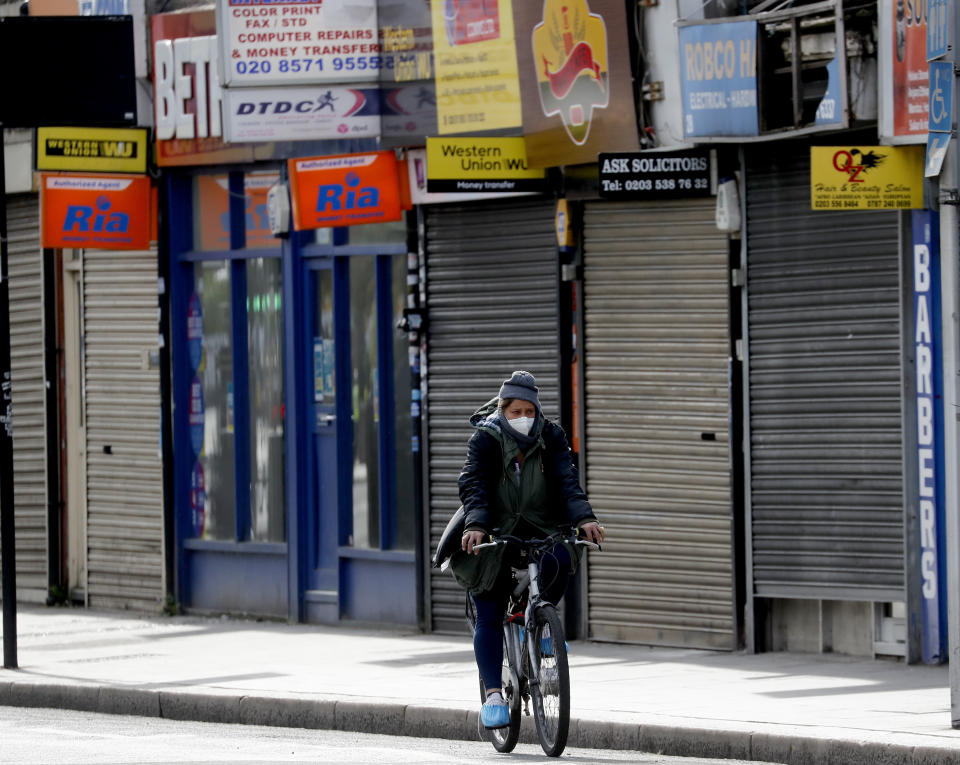Coronavirus: 46% of businesses don't know when they'll reopen

Almost 10 weeks after Boris Johnson first imposed a strict lockdown in the UK, close to half of all British businesses still have no idea when they’ll reopen.
The Office for National Statistics (ONS) said on Thursday that a survey of over 5,000 UK businesses, taken between 4 and 17 May, found 46% were unsure of when they would reopen.
Thousands of businesses in sectors like retail, hospitality, travel, and leisure closed their doors in March after the government imposed restrictions on everyday life to curb the spread of COVID-19.
The prime minister signalled that some shops may be allowed to re-open from June in a televised address on 10 May. More details have been shared in recent days: outdoor markets and car showrooms can reopen from 1 June, while other non-essential shops like clothing retailers can reopen from 15 June.
However, businesses like pubs, barbers and gyms are still waiting for clarity from the government on when and how they can reopen.
Read more: 8.4 million Brits furloughed as chancellor weighs end to scheme
The ONS found 14% of businesses said they planned to reopen in the next two weeks, while a further 10% planned to reopen within the next month.
31% of businesses said it would be at least another month before they reopen.
The survey found 79% of respondents had furloughed at least some staff under the government’s job retention scheme.
Of those due to start reopening in the coming weeks, employers expect to bring back just 31% of staff.
Figures from HMRC released on Wednesday (27 May) show 8.4 million Brits have been furloughed across the UK and 1 million employers have used the scheme.
Job ads have collapsed since the start of lockdown, the ONS said. Online postings for new roles have fallen by 50% between March and May, with steep falls in sectors like retail and travel.
The hospitality and catering sectors cut 86% of all jobs across the UK, according to job search engine Adzuna, which helped compile the figures, while retail positions fell by 70%.
Read more: Firms warn of closures and job losses if furlough grants cut
“The direct impact COVID-19 has had on sectors such as hospitality and retail has been catastrophic and is likely to take some time to recover,” said Andrew Hunter, the cofounder of Adzuna.
“I’m given some solace by the fact that in the last 2-3 weeks, the analysis suggests hiring looks to be turning a corner and returning to growth, albeit from a low base.”
The survey and job listing analysis is part of the ONS’s new “experimental” data sets meant to measure the impact of the COVID-19 pandemic in real time.
The ONS said data suggested new unemployment claims peaked shortly after the lockdown was announced, with 146,290 universal credit claims on the fifth day of lockdown. Claims have since stabilised to around 24,000 new individual declarations per day.
Fears are growing that the looming end to the government’s job retention scheme could lead to a second spike in layoffs, fuelling the growing unemployment problem in the UK.

 Yahoo Finance
Yahoo Finance 